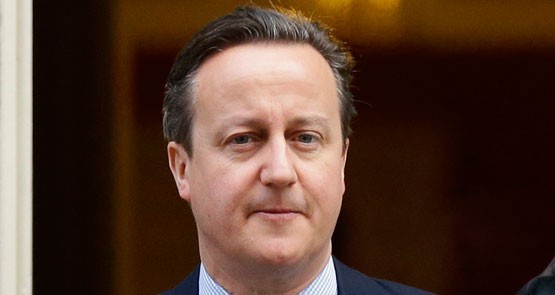
Just over 10 years ago, Britain’s Conservative Party — after eight and a half miserable years in opposition — elected as their leader the most young and progressive candidate they could find, David Cameron.
Since then he has led them to victory twice. But for much of the time he has been at war with large segments of party opinion, most obviously on the topic of relations between Britain and the European Union.
As the EU has moved (hesitantly) towards greater integration, Tory hatred of the whole institution has mushroomed. Nor is it just the Conservative Party: on its right flank it has the xenophobic UK Independence Party to contend with, while the Labour Party’s new leader, Jeremy Corbyn, is at best lukewarm about Europe.
To appease his party, Cameron promised that he would try to negotiate a new relationship with the EU, and would put the results to a referendum, in which Britain could decide whether to stay or leave, by the end of 2017. But feeling has turned against him so strongly that he now wants to advance that timetable.
The plan is to try to wrap up the negotiations next month, with a view to holding the referendum this year — ideally in June, before the summer holidays.
If Cameron can get a good deal out of his fellow EU leaders, he will want to cash in on the momentum and hold the vote as soon as possible. And even if the deal isn’t so good, he probably feels that things will only get worse if he waits.
The Europeans are sounding conciliatory; Donald Tusk, the president of the European Council, says they have “demonstrated willingness to look for compromises” on Britain’s demands. But it’s not clear how much room for manoeuvre there is.
It’s hard to believe that any tinkering at the edges of the EU relationship is going to change many minds. Certainly Cameron’s enemies are not going to shift: he has already had to concede that there will be no cabinet solidarity on the referendum, and that Eurosceptic ministers will be free to campaign to leave.
European leaders must be shaking their heads in despair. A British exit would be a huge blow to the EU, so it’s easy to see why they might be willing to make significant concessions. But it’s the problem of appeasement throughout the ages; concessions now may simply encourage further demands in the future, from Britain and maybe from other members as well. Or as Kipling put it, “if once you have paid him the Dane-geld / You never get rid of the Dane.”
If, as seems possible, the British are just never going to be comfortable with European federalism and are one day going to leave anyway, there’s a strong argument for getting it over with sooner rather than later. Then the two sides can get on with working out a sensible bilateral relationship, rather than spending their time on negotiations that just create more ill-will and delay the inevitable.
And even if you don’t think that a British exit (“Brexit”) is inevitable, it might make good tactical sense for the Europeans to behave as if it is. In other words, perhaps the European position currently suffers from using too much carrot and not enough stick.
That’s the argument of Joris Luyendijk in the Guardian last week: “The best way forward for Europe is to threaten to hit the English as hard as we can. We must stop treating membership of the EU as a favour granted by England, and instead make the English feel their vulnerability and dependence.”
Luyendijk understands that Britain does not have the same sense as the rest of Europe of the EU as “a cultural and political project”. But although on one view that’s a problem, suggesting a deep incompatibility, it also makes the British susceptible to an argument based on economic self-interest.
But that’s a difficult argument for Cameron and his allies to make because it means owning up to British weakness. British voters have a deep need to believe that their country is still great, and that (against all the evidence) Europe needs them more than they need it.
On the other hand, we know that fear of the unknown is a powerful factor in referenda. Just as Scotland backed away from independence in 2014 for fear of the risks of going it alone, so too the risks of a future without the EU (including, of course, that of further antagonising the Scots) may still entice a majority voters into Cameron’s camp. But it will require some tough talking from across the Channel.








If Britain is better of without the EU, is the same true for Greece, Portugal, Spain and Italy?
I think the bigger question is whether the EU would be better off giving Britain the Big A.
This sounds like the six year old who takes his teddy and threatens to leave home.
You can hardly compare the risks Scots felt of “going it alone” after hundreds of years, with the UK’s short stint in the EU, only having joined within living memory.
Thanks everyone. Peter, I think the point there is that the EU plays a different role on the continent from what it does for Britain. Spain, Italy & the rest in the 20th century all went thru war, dictatorship & occupation; the EU is primarily a way of guaranteeing peace & democracy. Britain didn’t have that experience, so it sees it much more as an economic contrivance.
Woopwoop: Sure, there’s a difference of degree there, but untangling the EU relationship after 43 years of membership would still be a pretty big task. And it would probably involve saying goodbye to the Scots, too.